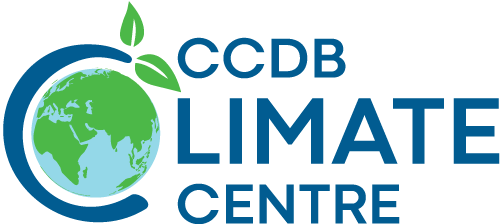June 24 – July 12, 2024
Applications have closed
Facilitators: Foezullah Talukder, Mousumi Halder, Marian Turniawan
Human-induced climate change is the most pressing global issue of our time. How humans have historically lived, played, and dreamed is changing. The impacts of climate change are felt across all aspects of human society: health and sanitation, water and food systems, housing, employment, industry, finance, security, conflict and peacebuilding, and migration, to name several. Additionally, actions being taken around climate intersect with the interests of many civil society actors, such as those seeking gender justice, upholding and honouring indigenous rights and knowledge, and social movements concerned with environmental issues, youth voice, and a just transition for workers, among others. Within this context of overlapping crises in a changing climate, the ways in which humans think, problem solve, and organize our societies must change.
This course has been designed in two parts: an online, self-paced (asynchronous) module and an in-person intensive course held at Coady Institute in Nova Scotia, Canada. The online module, which is expected to take 4-6 hours to complete, will be made available 2 months prior to the course start date and must be completed at least a week before the course begins. It is designed to provide participants with basic understandings of climate concepts to ensure all participants arrive with the same base knowledge. It covers the following topics:
- Basics of climate science and impacts on Earth’s systems
- Climate impacts on human systems
- Introduction to adaptation and mitigation
- Introduction to international instruments (policies, frameworks, agreements, finance)
Providing this level-setting piece before the on-campus course allows us to dive deeper into practical approaches to community-led adaptation and mitigation, exploring how to build resilience to climatic shocks and apply a climate lens to social change within participants’ unique contexts.
The course will use case studies from different regions of the world and draw on the experiences of participants, facilitators, and local practitioners, activists, and community members to explore how efforts to address, adapt to, and mitigate the negative effects and impacts of climate change intersect with:
- Efforts to shift economic models and livelihood approaches, specifically discussing circular economy, just transition, and care work as climate work in the green and blue economy;
- Community-led solutions to the climate crisis and intersecting crises, including approaches to community engagement and climate activism;
- Justice movements, and how to apply intersectional gender-based analysis to climate-related policies and programs;
- Asset- and strengths-based approaches to sustainable community development and engaging with the localization of the UN sustainable development goals (SDGs); and
- Knowledge creation and sharing, specifically looking at farmer-to-farmer methodologies and farmer field schools, innovative digital platforms, and the power of storytelling.
Learning Objectives
At the end of the course, participants will be able to:
- Explain basic climate change science using accessible language and imagery,
- Identify and discuss examples of differentiated impacts of climate change within their community,
- Demonstrate understanding of the distinction between adaptation to and mitigation of the impacts of climate change, and mitigating climate change through reduction of GHG emissions and support of carbon sinks, grounded in their community’s context,
- Identify and explain the significance of the international instruments (agreements, policies, frameworks, and finance) relevant to their context,
- Apply gender mainstreaming frameworks and intersectional gender-based analysis to policies and programs in their work,
- Support community members in assessing their level of risk to climate hazards and facilitate mapping of community strengths and assets and engagement with community climate resilience building frameworks to address those risks,
- Engage in debates on possible shifts in economic approaches and models within the context of a changing climate, including discussions around shifts in employment opportunities, supporting workers in transition, and changes in livelihoods, and
- Engage in discussions around localization of the UN SDGs and their applicability in participants’ context (work, community, etc.).
Course Outcomes
By the end of this course, participants will have:
- Reviewed units in the climate basics module and completed comprehension checks and individual reflective activities through the online learning platform,
- Participated in a variety of individual and group activities that engage with the content outlined above while demonstrating a range of facilitation and community engagement approaches,
- Completed a group assignment based on a community engagement activity during the first week on campus, and
- Completed one of the following final assignments, either individually or in a group:
- Produce a plan for the application or integration of course learnings into participants’ work that employs at least one of the facilitation and/or knowledge sharing approaches covered in the course, OR
- Create a knowledge sharing piece that translates or mobilizes course learnings for the participant’s community.
Fees
Coady Institute ensures that participants working with marginalized communities around the world have access to its courses. This is made possible through the provision of bursaries that are funded by many individual and institutional donors. After bursary, the remaining cost of the program is $2,000 CAD. Accepted participants will be responsible for paying the balance of $2,000 CAD before the designated deadline. This includes room and board for the 3-week residency at Coady Institute on the campus of St. Francis Xavier University, Antigonish, Nova Scotia.
All travel related expenses including airfare and visa fees are the responsibility of the participant. Coady Institute will arrange and cover ground transportation costs between Halifax Stanfield International Airport and the Coady Institute.
In partnership with

![CCDB-LOGO[2] CCDB](https://coady.stfx.ca/wp-content/uploads/2022/12/CCDB-LOGO2.png)
